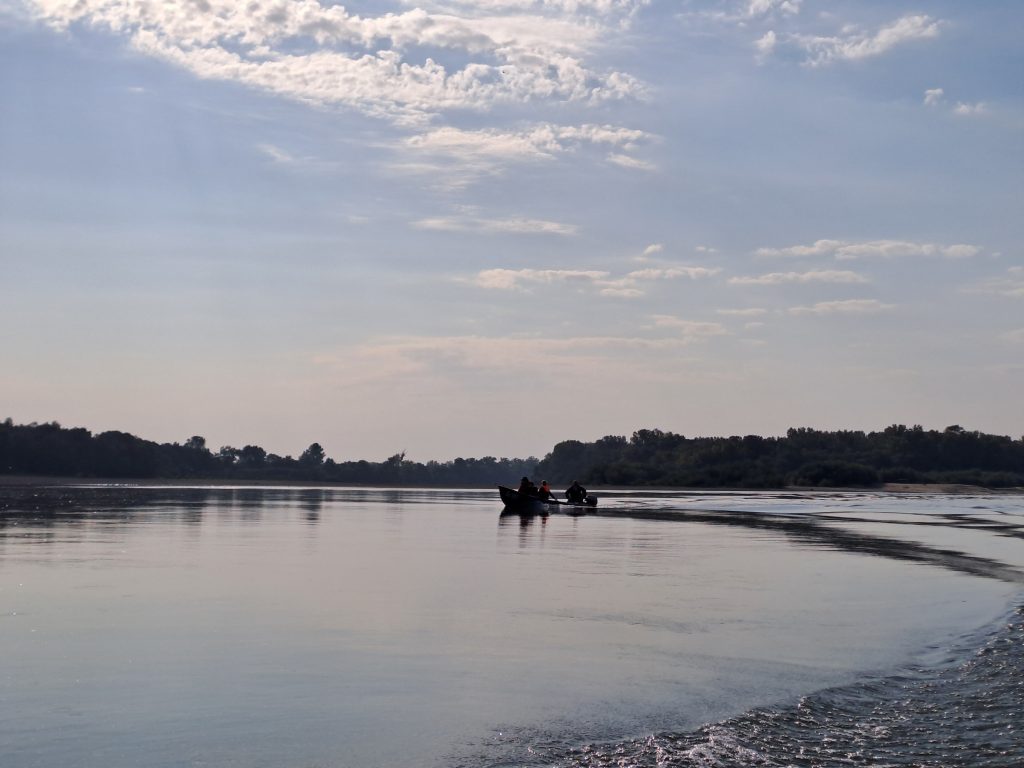In the third year of the “Contested Waterway” project, the second on-site event took place in Bulgaria. The workshop titled “Old Strategies and New Priorities. How Can Historical Research Inform Sustainable Development along the Lower Danube?” was held in the town of Belene, which is located on the straits of the Danube.
In 2020, the European Union updated its Strategy for the Danube Region (developed from 2010 onwards) to align with new strategies, notably the European Green Deal. The main goals remain the same and include a focus on inland navigation, biodiversity, wide economic disparities, and (flood) risk management. Public awareness of a need to fight ecological devastation became prominent in the 1980s. Still, local communities had long been sceptical of conservation measures, and they feared for their material wellbeing. Recent interdisciplinary scholarship has also pointed out that these old and some new strategies often underperformed. One possible explanation for such failure is that most projects overlooked the fact that the Danube and its floodplain are collectively a living organism that changes shape both seasonally and in the long term. Furthermore, for over two centuries, humans have produced “nature” through technology, as artefacts such as dams and canals have become part of the Danube’s hydrology.

View of the Danube and the small island of Magaretsa. Behind it lies the much larger island of Persin, which divides the flow of the Danube along Romania and Bulgaria for a few kilometres. Photo: Merve Neziroğlu.
This background inspired the workshop to ask many questions, such as: How can we learn from past mistakes and avoid making them in the future? Is a form of sustainable development possible that find a balance between infrastructural development, economic exploitation, nature conservation, and local empowerment? Given the long history of technological intervention in the riverbed, how do conservation and ecological renaturation schemes interact with existing layers of material infrastructure?

One of our input sessions, here on Protected Areas. Photo: Merve Neziroğlu.
For our workshop, we invited local stakeholders and scholars from the humanities, social sciences, and natural sciences to discuss these topics and produce a relevant report for policymakers on the Danube and its infrastructure. During our workshop, the experts gave inputs for topics such as Protected Areas and Marshlands, the Historical Evolution of the Danube River Valley in its Lower Sector, Belene and Persin Island as a Labor Camp and Prison, and a contextualisation of the Danube in the broader field of International Organizations. These theoretical inputs were complemented by our excursions on-site.

Starting our day with an excursion from Belene to the other side of the large Island of Persin. Photo: Merve Neziroğlu.
The Bulgarian town of Belene, with its roughly 6.000 inhabitants, was our venue for good reasons: Located on the straits of the Danube, its surroundings faced many changes, be it because of human intervention or because of the Danube’s shape that changes organically.
We were interested in how global and international development strategies have impacted local communities and their relationship with the Danube. Therefore, a crucial part of this workshop were the excursions by boat, where we explored the surrounding areas of Belene and the islands in near proximity. The local knowledge of the fishermen who guided us not only complemented our theoretical considerations, but also emphasized once again how important the inclusion of this knowledge is in broader contexts.

These tracks in the sand most probably originated from beavers. Our local experts also showed us traces of wild boars and jackals (the latter was audible at night for those who slept without earplugs). Photo: Merve Neziroğlu.
The workshop’s main goal was to produce a report for policymakers on the Danube and its infrastructure. After two intensive days of input sessions and excursions, we took a long brainstorming and writing session in which we discussed the information we gathered. Based on this, the “Contested Waterway”-project wants to develop the report and submit it to a relevant policy journal.
This workshop was organized within the project “Contested Waterway. Governance and Ecology on the Lower Danube, 1800–2018”, supported by the Leibniz Association (2020–2023).